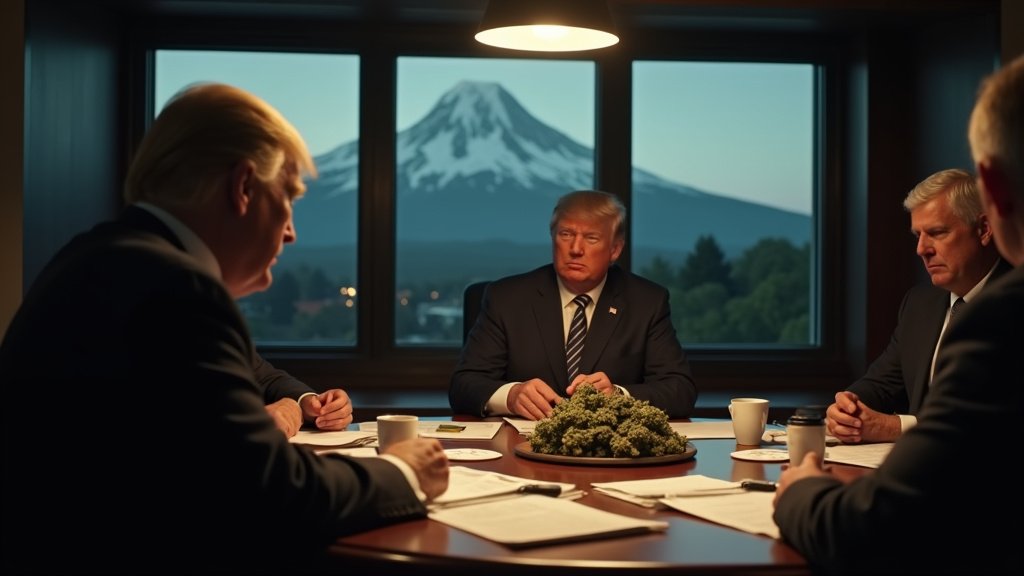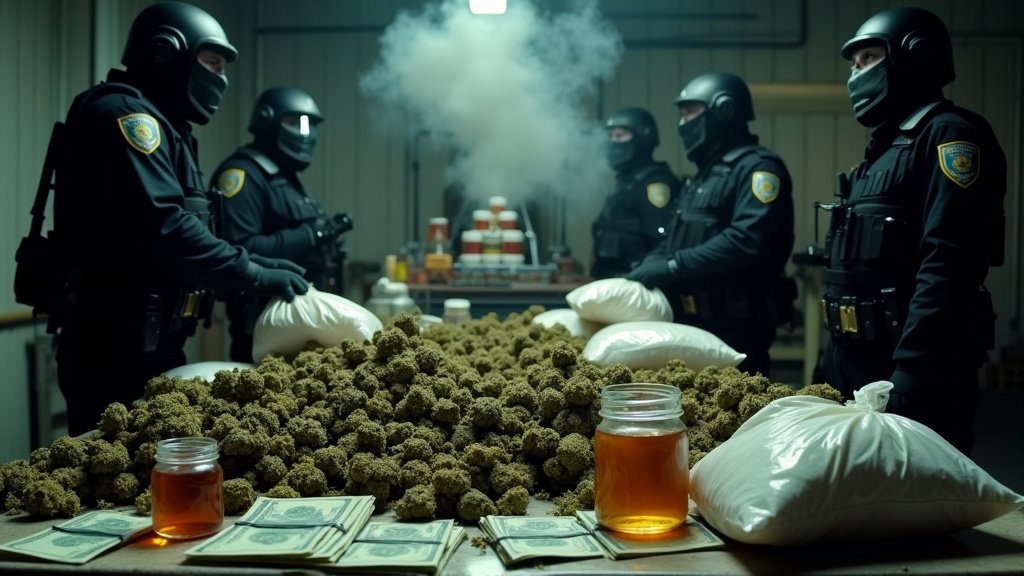Trump Administration Reportedly Weighs Major Marijuana Reclassification, Impacting Oregon Cannabis Scene
Washington D.C. – In a move that could reshape the nation’s cannabis landscape, former President Donald Trump is reportedly considering a significant reclassification of marijuana, potentially moving it from a Schedule I controlled substance to a Schedule III drug. This potential shift, reportedly discussed at a recent fundraiser attended by executives from the cannabis industry, could dramatically streamline the processes involved in buying and selling marijuana, thereby boosting the profitability of the burgeoning industry.
Potential Reclassification and Industry Impact
The reclassification of marijuana from Schedule I – a category that classifies drugs as having a high potential for abuse and no accepted medical use – to Schedule III, which allows for drugs with moderate to low potential for physical and psychological dependence, would represent a substantial federal policy change. Currently, the stringent regulations surrounding Schedule I substances create significant hurdles for cannabis businesses, including limitations on research, banking access, and taxation. A move to Schedule III could alleviate many of these burdens, making it easier for cannabis companies to operate, access capital, and conduct business across state lines.
This consideration by Trump’s team follows similar efforts by the Biden administration, which had also pursued a comparable reclassification. However, that initiative did not reach finalization, leaving the federal status of cannabis in a state of continued uncertainty. The news comes amidst a wave of legislative action at both federal and state levels aimed at reforming cannabis laws.
Congressional Efforts and State-Level Momentum
Several bills currently before Congress aim to either reclassify or decriminalize cannabis. These legislative proposals reflect a growing bipartisan recognition of the need to update federal drug laws in light of increasing state-level legalization of marijuana for medical and recreational use. The disparity between federal and state laws continues to create complex legal and financial challenges for the cannabis industry.
In parallel with these federal discussions, states like Oregon are seeing their own advancements in cannabis policy. Notably, Oregon‘s own Congressmember Val Hoyle has become a co-sponsor of the STATES 2.0 Act. This critical piece of legislation aims to fundamentally alter the federal approach to cannabis by ending federal prohibition in states where it is legal. The act proposes to allow for interstate commerce of cannabis products, which would open up new markets and supply chains for businesses. Furthermore, it seeks to revise federal tax codes as they apply to cannabis businesses, addressing a long-standing grievance within the industry regarding tax burdens that disproportionately affect legal marijuana operations.
Local Initiatives in Oregon
On the ground in Oregon, public engagement with cannabis policy continues to grow. A campaign focused on legalizing cannabis consumption lounges is gaining momentum. Signature gathering for ballot initiatives related to these lounges is slated to commence next month, with the goal of placing the issue before voters on the 2026 ballot. The push for consumption lounges reflects a desire to create safe and regulated public spaces where consumers can legally use cannabis products, mirroring trends seen in other legal markets and further signaling the evolving attitudes toward marijuana at the local level.
The potential reclassification under a future Trump administration, coupled with ongoing federal legislative efforts and grassroots movements in states like Oregon, signals a dynamic and potentially transformative period for cannabis policy in the United States. The coming months and years will likely bring further developments as lawmakers and the public continue to grapple with the implications of federal marijuana reform. The news of these potential changes underscores the shifting national conversation surrounding cannabis and its place within the American economy and society.




